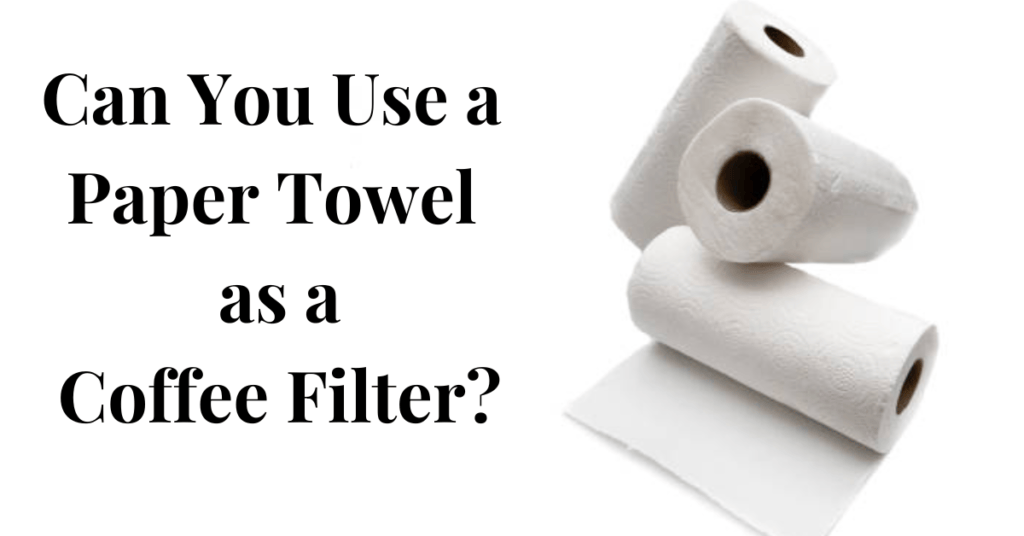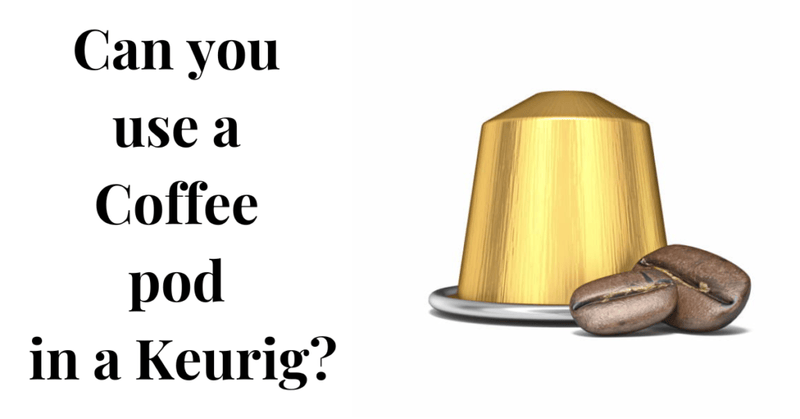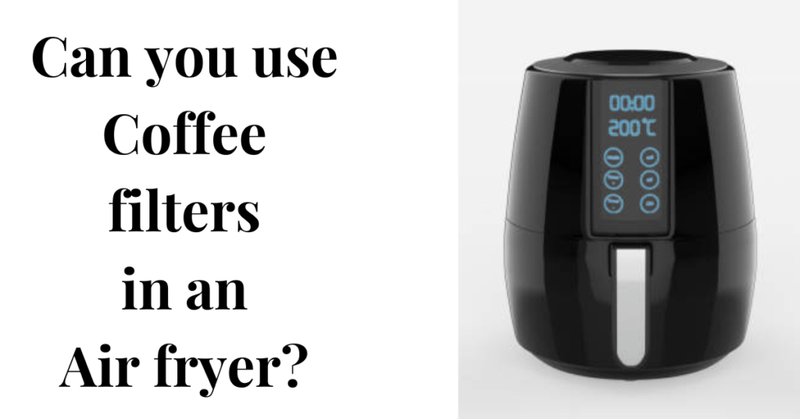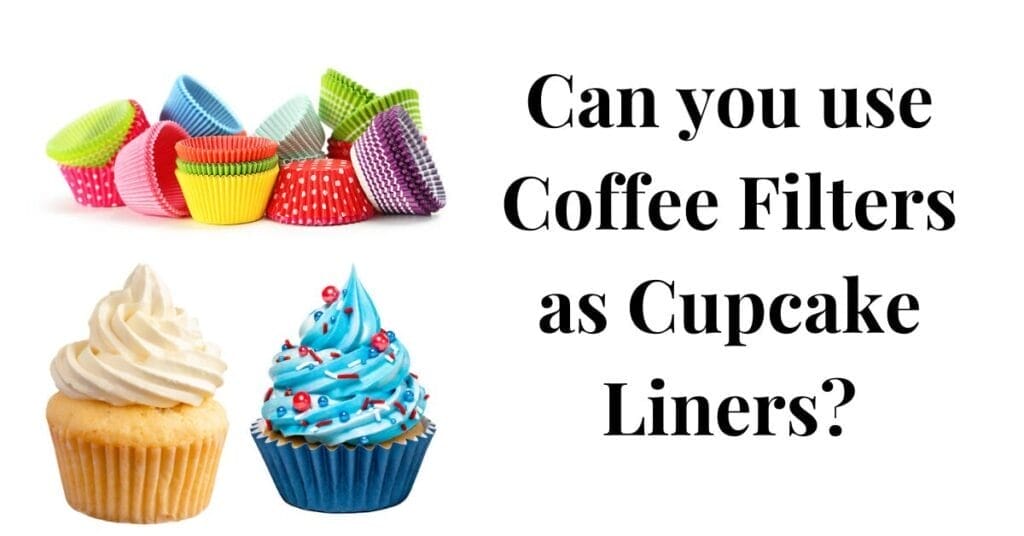In a pinch, a paper towel can serve as a makeshift coffee filter. While not ideal for taste or durability, it can work temporarily. Among common coffee filter alternatives, reusable cloth options like cotton UNpaper® towels offer better filtration, absorbency, and sustainability, making them a more reliable solution when standard filters are unavailable.
As an affiliate site, we are associated with the amazon. We might receive a commission when you use links or recommendations on our website to make qualified purchases. The cost you pay for the goods or services is unaffected by this.
Table of Contents
Can you use a Paper Towel as a Coffee Filter? How to use a Paper Towel?

Using a paper towel is straightforward and typically involves the following steps:
- Tear off a Sheet: Start by tearing off a single sheet of paper towel from the roll or pack. Most paper towel dispensers have perforated lines to make tearing easier.
- Clean Spills or Surfaces: Use a paper towel to clean up spills or wipe down surfaces. Press the paper towel onto the spill or surface and gently wipe in a back-and-forth motion to absorb liquids or remove dirt and debris.
- Dry Hands: If using a paper towel to dry your hands, simply rub your hands together vigorously while holding the towel until your hands are dry.
- Dispose of Used Towel: Once you’ve finished using the paper towel, dispose of it in the trash.
- Repeat as Needed: If additional cleaning or drying is required, tear off another sheet of paper towel and repeat the process.
Paper towels are versatile and can be used for various cleaning tasks in homes, offices, restaurants, and other settings.
A paper towel as a coffee filter is possible, albeit with some caveats. Paper towels possess a degree of porosity, which allows them to absorb liquids and make them suitable for filtering coffee grounds. However, they lack the specific properties designed for coffee filtration in purpose-made filters.
When using a paper towel as a coffee filter, it’s essential to consider several factors. The texture and thickness of the paper towel directly affect filtration and brew time. Thicker towels filter better but brew slower, while thinner ones allow more sediment—especially when using a machine without filter, where clarity depends entirely on the substitute.
Moreover, the type of paper towel matters. Some paper towels are treated with chemicals or have added fragrances, which could affect the coffee’s taste. Unbleached, natural paper towels are preferable in such cases.
Additionally, paper towels may not be able to withstand the heat of boiling water for extended periods, potentially leading to tearing or disintegration. This can result in coffee grounds leaking into the brewed coffee, affecting its taste and texture.
In terms of technique, using a paper towel as a coffee filter is similar to using a conventional filter. Simply fold the paper towel to fit your coffee maker’s basket or cone, add coffee grounds, and pour hot water over them. However, it’s essential to be cautious and monitor the brewing process closely to ensure the paper towel doesn’t tear or disintegrate.
While using a paper towel as a coffee filter is feasible in a pinch or emergency situation, it’s not an ideal long-term solution. For consistently high-quality coffee, investing in purpose-made coffee filters is recommended. These filters are designed specifically for coffee brewing, offering better filtration and ensuring a cleaner, more flavorful cup of coffee.
Are Paper Towels Food Safe?
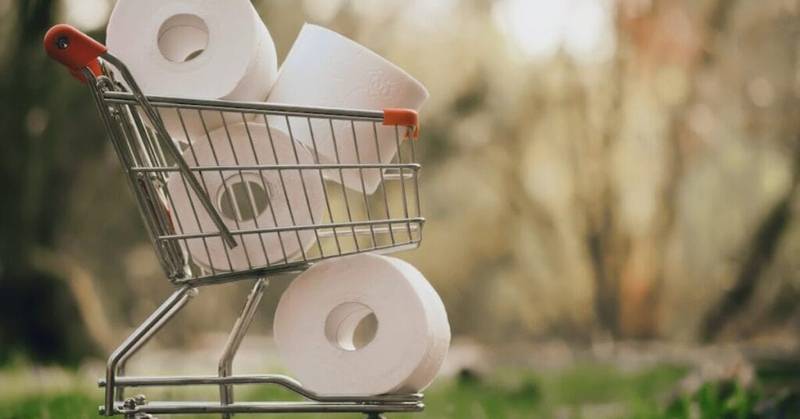
Paper towels are generally considered safe for food use, but whether they are food-safe depends on various factors, including their composition, manufacturing process, and intended use.
- Composition: Most paper towels are made from wood pulp, which undergoes processing to become the absorbent sheets we use in households. Some paper towels may also contain additives, such as bleach for whitening or fragrance for scent. These additives can raise concerns about food safety if they come directly into contact with food or beverages.
- Manufacturing Process: Paper towels undergo a manufacturing process that involves pulping, pressing, drying, and sometimes treatment with chemicals for added strength or absorbency. Manufacturers adhere to food safety regulations and standards to ensure that the final product is safe for its intended use.
- Intended Use: Paper towels are primarily designed for cleaning and absorbing liquids. While they are not intended for direct contact with food during the cooking or serving process, they are often used as a barrier or surface for food preparation, such as lining trays or absorbing excess moisture from foods.
- Regulation: Regulatory bodies, such as the U.S. Food and Drug Administration (FDA) and similar agencies in other countries, oversee the safety of materials that come into contact with food. Paper towels marketed for food must comply with relevant regulations and standards to ensure they do not pose a risk to human health.
While paper towels are generally considered safe for their intended use in food preparation and handling, it’s essential to use them as directed and avoid direct contact with food if there are concerns about additives or contaminants.
Additionally, choosing unbleached or natural paper towels may offer peace of mind for those seeking to minimize potential risks associated with food contact.
What are Paper Towels?
Paper towels are absorbent sheets made from paper pulp used to clean up spills, wipe surfaces, and dry hands. They are typically disposable and come in rolls or packs. The absorbent properties of paper towels make them useful for various household and commercial cleaning tasks. They are often preferred over reusable cloths for their convenience and hygiene benefits.
What are Coffee Filters?

Coffee filters are porous materials used to separate coffee grounds from brewed coffee during brewing. They come in various shapes, sizes, and materials. Still, their primary function remains consistent: to trap the coffee grounds while allowing the brewed coffee to pass through, resulting in a clean and sediment-free cup of coffee.
Coffee filters are typically made from paper, cloth, metal, or nylon. Paper filters are the most common and are often disposable. In contrast, cloth, metal, and nylon filters are reusable and offer different brewing characteristics.
Using a coffee filter involves placing it in a coffee maker or brewing device, adding coffee grounds into the filter, and then pouring hot water over the grounds. As the water passes through the filter, it extracts the flavor compounds from the coffee grounds, producing brewed coffee free from sediment and impurities.
Overall, coffee filters play a crucial role in the coffee brewing process. They ensure a smooth and flavorful cup of coffee while preventing the transfer of coffee grounds into the final beverage.
Advantages of Using a Paper Towel

Using a paper towel as a coffee filter offers several advantages:
- Accessibility: Paper towels are widely available in most households and stores, making them easily accessible when traditional filters are unavailable.
- Versatility: Paper towels can be shaped and folded to fit various coffee makers, providing flexibility in brewing methods such as drip brewers, pour-over cones, or makeshift setups.
- Cost-effectiveness: Paper towels are generally more affordable than specialized coffee filters, making them a practical option for those on a budget or in temporary situations.
- Absorbency: Paper towels are designed to absorb liquids efficiently, aiding extraction and contributing to a flavorful cup of coffee.
- Minimal Cleanup: Disposable paper towels eliminate the need for cleaning and maintenance associated with reusable filters, offering convenience, particularly in outdoor or limited-resource settings.
While using a paper towel as a coffee filter has its advantages, it’s important to acknowledge its limitations, including the risk of tearing, lack of specialized filtration, and potential impact on taste. For consistent quality, investing in purpose-made coffee filters is recommended.
Disadvantages of Using a Paper Towel
Disadvantages of using a paper towel as a coffee filter include:
- Limited Filtration: Paper towels lack the specialized filtration properties of coffee filters, potentially allowing more sediment to pass through into the brewed coffee, resulting in a less clean cup.
- Risk of Tear: Paper towels may tear or disintegrate when exposed to hot water for extended periods, compromising the brewing process and potentially allowing coffee grounds to leak into the brewed coffee.
- Impact on Taste: Paper towels’ texture and composition may affect the coffee’s taste, particularly if the towels are treated with chemicals or fragrances. This can alter the flavor profile of the brew.
- Inconsistent Results: Due to variations in thickness and texture among different brands and types of paper towels, the brewing process using a paper towel as a filter may yield inconsistent results regarding taste, clarity, and extraction.
- Environmental Impact: Disposable paper towels contribute to waste generation, unlike reusable coffee filters, which can be washed and reused multiple times. Thus, they are a less sustainable option in the long run.
Other Coffee Filter substitutes
Several alternatives to traditional coffee filters exist, each with its own characteristics, usage instructions, advantages, and disadvantages:
Cloth Filters:
- Details: Cloth filters are made from natural materials such as cotton or hemp. They are reusable and come in various shapes and sizes.
- How to Use: Rinse the cloth filter with hot water to remove debris or residue. Place the filter in the coffee maker or brewing device, add coffee grounds, and pour hot water over them.
- Pros: It is environmentally friendly and reusable, and it can enhance the coffee’s flavor profile by allowing natural oils to pass through.
- The cons are that it requires thorough cleaning after each use, may retain coffee oils and flavors, and may require experimentation to achieve desired brewing results.
Metal Filters:
- Details: Metal filters are usually made from stainless steel or gold-plated mesh. They come in different sizes and styles, including cone-shaped and disk-shaped varieties.
- How to Use: Rinse the metal filter with hot water. Place it in the coffee maker or brewing device, add coffee grounds, and pour hot water over them.
- Pros: It is reusable and durable, and it allows more oils and fine particles to pass through, resulting in a fuller-bodied coffee.
- The cons are that it can be more expensive upfront, it may require coarser coffee grounds to prevent over-extraction, and it may alter the flavor profile of the coffee.
French Press:
- Details: A French press consists of a glass or stainless steel container with a plunger and a metal mesh filter attached.
- How to Use: Add coarsely ground coffee to the French press, pour hot water over it, stir, and let it steep for a few minutes.
- Pros: It produces a rich and flavorful brew, there is no need for disposable filters, and it is versatile for brewing various types of coffee.
- The cons are that it requires manual operation and monitoring of brewing time, it may leave sediment in the coffee if not poured carefully, and the glass components can be fragile.
Aeropress:
- Details: The Aeropress is a compact coffee maker with a chamber, plunger, and micro-filter.
- How to Use: Place a filter in the filter cap and attach it to the chamber. Add coffee grounds and pour hot water over them. Stir, insert the plunger, and press down slowly to extract the coffee.
- Pros: It is portable, easy to clean, allows for experimentation with brewing methods, and produces a smooth and clean cup of coffee.
- Cons: Limited capacity (typically brews single servings), requires some manual effort, may not suit everyone’s brewing preferences.
Sock Filters (e.g., Vietnamese Phin Filter):
- Details: Sock filters consist of a cloth filter bag attached to a metal or plastic ring. They are commonly used in Vietnamese coffee brewing.
- How to Use: Place the sock filter on a cup or container, add coffee grounds, and pour hot water over them. Allow the coffee to drip through the filter into the cup.
- Pros: It is simple to use, portable, allows for slow extraction and strong flavor, is reusable, and is easy to clean.
- Cons: Limited availability outside regions where they are commonly used may require a specific brewing technique to achieve desired results.
Each alternative coffee filter substitute offers unique characteristics and brewing experiences. Experimenting with different methods can help coffee enthusiasts discover their preferred brewing style and flavor profiles.
Can I use tissue paper as a Coffee Filter?
- Absorbency: Tissue paper is designed to be highly absorbent, which means it may soak up a significant portion of the brewed coffee, resulting in a weak and diluted cup.
- Durability: Tissue paper is thin and delicate, making it prone to tearing or disintegrating when exposed to hot water. This can lead to coffee grounds leaking into the brewed coffee, affecting its taste and texture.
- Chemicals: Some tissue papers may contain additives or fragrances that are not intended for food use. These chemicals can leach into the coffee, posing health risks or altering its flavor.
- Filtration: Tissue paper lacks the specialized filtration properties found in coffee filters, which are designed to trap coffee grounds while allowing brewed coffee to pass through. Using tissue paper may result in a cup of coffee with sediment or particles.
While tissue paper may seem like a convenient alternative in a pinch, it is not suitable for use as a coffee filter. For a consistent and enjoyable brewing experience, it’s best to use purpose-made options such as a colour coffee filter, which is specifically designed to handle heat, improve filtration, and preserve coffee flavor.
FAQs || Can you use a Paper Towel as a Coffee Filter
Which cloth is best for filtering?
Polypropylene is the top choice for filtering due to its superior performance across various applications. Its ability to endure high temperatures, resistance to blinding, and smooth surface facilitate cake removal, making it the standard for filter cloths.
What material can be used as a filter?
Charcoal and paper are both effective filter materials. Charcoal’s porous nature enables it to trap small particles while absorbing odors and impurities. The paper’s thinness allows water to pass through easily, making it a cost-effective and readily available option for filtering.
Can Cotton balls filter water?
Cotton balls can be used as water filters by being tightly packed into a tube and secured to prevent movement. When water is passed through the cotton ball-filled tube, larger particulate matter gets trapped in the cotton fibers, effectively creating a filter for larger particles.
What is a Paper Towel used for?
Paper towels are versatile for various tasks due to their absorbent nature. Their loose weave allows water to travel between fibers, aided by the capillary effect. It makes them efficient for drying hands, wiping surfaces, cleaning windows, dusting, and absorbing spills, similar to conventional towels.
Conclusion
In conclusion, while a paper towel can serve as a makeshift coffee filter in an emergency, it is not an ideal replacement for a purpose-made option. Its thickness and texture can affect extraction and taste. Additionally, some paper towels contain chemicals like chlorine and formaldehyde from bleaching processes.
Compared to tissues, paper towels are larger, thicker, and more porous. For safer brewing and better flavor consistency, using a dye coffee filter designed specifically for coffee preparation is the preferred choice.

